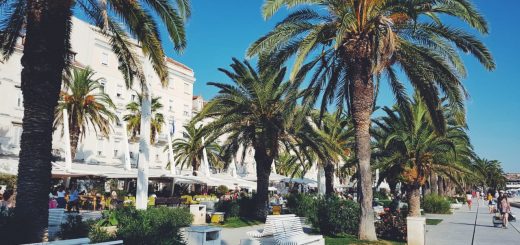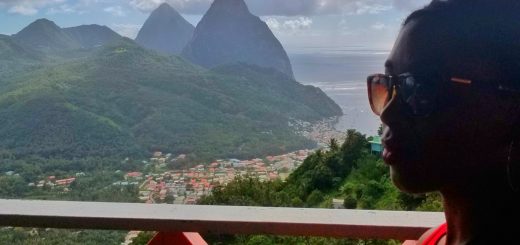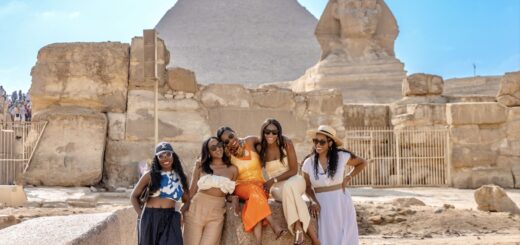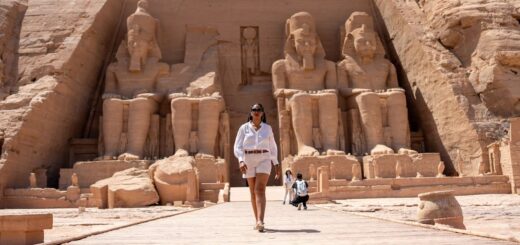Israel- Part 1- Why was I there?
A lot of people saw the pictures I posted on social media regarding this trip, and were wondering what the heck I was doing over there as I hadn’t provided any context. What happened was, I won a scholarship from the OAS (Organisation of American States) to pursue a post-graduate diploma in Environmental Management at the Galilee International Management Institute in Israel. The OAS offer a range of scholarships for academic studies as well as professional development for residents of the Americas. You can check out the offerings here.
Getting There
The cheapest, most direct route would have been to get to NYC and take the direct flight from El Al (Israel’s national Airline) to Tel Aviv. However, I read several poor reviews about comfort/conditions on board their planes and customer service (tales of random cancellations etc) . Let me tell you, the LAST thing you want to be on an 11 hour flight is uncomfortable. I decided I’d bet on Delta instead. This had some repercussions, but more about that later.
The route I took was Kingston-Atlanta-JFK-Tel-Aviv. A bit tedious yes, but I definitely wanted to be on that Delta direct flight from New York to Tel Aviv. I was trying to get at least a direct flight to NYC from Kingston, but it didn’t work out (timing), and so I stuck with Delta all the way through. I had a stroke of luck when I randomly ran into a Jamaican Delta worker in Atlanta and she got me access to the Sky Club Lounge. I really appreciated it because I had a longish layover and the extra comfort (and Wi-Fi) was handy.

Sitting pretty in the Sky Lounge!
Life in the Kibbutz
For the duration of the course, we would call Kibbutz Mizra home. Mizra is located in the Galilee region of Israel, near the town of Nazareth. Kibbutz Mizra engages in community tourism and has a bed and breakfast (where most of us stayed) and a hotel on site.
The original aim of Kibbutz (which means “group” in Hebrew), was to establish “a voluntary democratic community where people live and work together on a non-competitive basis. Its aim is to generate an economically and socially independent society founded on principles of communal ownership of property, social justice, and equality.” – In essence a Kibbutz is a self-sustaining community.
The first Kibbutzim were founded in the early 1900’s before the creation of the state of Israel. We were told that kibbutz throughout Israel produce about 35% of the food produce and 10% of the industrial produce ( even though comprising a small percentage of the population). Kibbutzim have their own schools, rules and amenities, however the residents are subject to the laws of Israel like any other citizens. For instance they all have to participate in mandatory military service upon completion of high school 2 years for women, 3 years for men.
Though founded on egalitarian principles, things in the kibbutz have changed in the past few years. Young persons began rebelling against the ideology and fewer were returning to Kibbutz life after leaving military service/school. The elders realized that the Kibbutz needed some transformation in order to avoid going extinct.Originally, all income generated by the Kibbutz went into a single account and apportioned based on family size. In 2009 they had a vote and the Kibbutz officially started to incorporate a more capitalistic path into their lifestyle, while still retaining as many of the core values as possible.
This brought many changes, for instance originally once you were accepted to the Kibbutz, the organisation would build a house for you with their funds. Now, new residents have to raise their own capital. Persons now manage their money directly, but must pay into the Kibbutz according to level of income.
There are 3 ways to become a kibbutz member:
- Be born a Kibbutz member
- Marry a Kibbutz member
- Make an application to the authority (most tricky)
The members participate in many social activities together. They have meals in the communal dining hall (especially on the Sabbath), there is a movie theatre, a supermarket with essentials etc. The ethos of the kibbutz is supposed to be give what you can and take what you need.
Caribbean Link up
Of the attendees, we were the first batch of OAS sponsored participants at the institute. Other representatives from the Americas this time around included Trinidad & Tobago, Peru, Ecuador, Costa Rica. There were actually three Jamaicans in attendance, myself, Peter and a lecturer from UTECH. Myself and Peter quickly fell into step with the Trinis and formed a really vibesy crew! We hit it off right from the beginning, and this would carry right through the programme. We even kept that going for the group project that we had, and that honestly made things very easy.

Shanta (T&T), Peter(JM), myself and Chris (T&T).
International Night
There was an international night staged by the college. We had participants from Austria, Benin, Botswana, Burkina Faso, Burundi, Cameroon, Cape Verde, Costa Rica, Cote d’Ivoire, Ecuador, Fiji, Ghana, India, Jamaica, Kenya, Liberia, Malawi, Mali, Mozambique, Niger, Nigeria, The Phillipines, Rwanda, Sao Tome & Principe, Sierra Leone, Trinidad & Tobago and Uganda. The college was running courses concurrently in English, French and Portuguese.
For international night, reps from each country had to prepare an item (song, dance etc) to perform , as well as bring items to display. I was a little miffed when I had found out about this requirement before going, because who wants to perform by themselves? Thank goodness though that Peter was there, so we performed together. Sharon (the other Jamaican) did a poem by Miss Lou dressed our national costume, and then Peter and I danced to a medley of dancehall songs. According to the others our performance set the the bar for the rest of the evening. This was especially funny since Peter and I planned our item about 15 minutes before and didn’t rehearse, but you know how Jamaicans do! Our table was also one of the most frequently visited during the night.
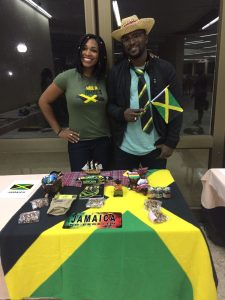
Our Display
Some countries decided to team up. For example the Latin American countries joined up for a song, and the demographically/culturally similar East African states of Uganda and Rwanda also joined forces. Overall it was a very good evening and and enjoyable experience.
[kad_youtube url=”https://youtu.be/2-ZMHKwfy8c” ]
Jamaica (sorry about the orientation).
[kad_youtube url=”https://youtu.be/BzWkgpPncBk” ]
Uganda
[kad_youtube url=”https://youtu.be/2NTaxC4f1oE” ]
Costa Rica, Ecuduador, Peru
Random Tidbits
- Now I think I know why Jewish people tend to live long- there is nothing in their food to kill them! On a serious note, I found Jewish Israeli food to be quite bland for the most part. My tastebuds were feeling deprived by the time I got back. For all the talk of spices in the Bible, I’m not sure how things turned out like this. I have to say, the best meals that we had were in establishments run by Palestinians/Arabs. Bless them. Though i did not really enjoy the food in the kibbutz most days, it was always fresh, and there were loads and loads of veggies (grown on by the kibbutz) available everyday. It must be nice knowing exactly where your food is coming from.
- There is little to no public transportation in Israel on a Saturday (the Sabbath), so you have to plan your movements carefully if you are on your own.
- Sundays are regular workdays. From what I could tell, a 5 1/2 day work week was not uncommon (Sunday to Friday morning), with many establishments closing early for the observance of the Sabbath on Friday evening.
Next Post
Next post- The Curriculum and Study tours
